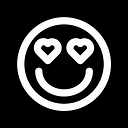🍨 The Inside Scoop — Jules Ang 🇸🇬
Get to know your mentors: Jules Ang
Welcome to ADPList’s interview series 🎉
My hope is that these interviews will serve as a useful resource for mentees who are looking and getting to know your mentors on our platform 💬
- The amazing design mentor: Jules Ang
- Favorite Emoji: 😁 I like this one because it looks like the way I smile.
- Current favorite song: Rainbows over Russia by Terror Jr
- Currently binge-watching: The IT Crowd
- Current favorite movie(s): Before Sunset (2004), Memento (2000)
“Working experience is more important than any design course that you can possibly pay for”
👋 Hi Jules, can you share a little bit about yourself?
Jules Ang:
Before design, I aspired to be a fine art photographer working with large prints or a superstar DJ traveling the world to make people dance.
I stumbled into the design by sheer luck when a friend thought to bring up the idea of “UX boot camps” to me one night at her balcony. I still recall how that night went, and it clicked in my head, and I proceeded swiftly to resign from my day job.
Tell me something that would never come up in conversation?
Growing up, I wanted to be a crane operator at a construction site because I often caught myself staring at them at my grandma’s. One day, that dream was immediately dashed when my dad rhetorically asked me, “What do you think happens when the crane operator needs the loo?”
What was the pandemic hobby that you picked up?
Getting ready for the workday in less than 5 minutes. It means that I can wake up, and then in five minutes, I will get ready for work because of the pandemic.
What kind of impact are you making in the world using your design skills?
To get people to walk a mile in other peoples’ shoes.
So in English is like saying, if I want you to understand how someone feels, I have to make you walk a mile in their shoes. It’s like, for you to empathize with someone. You must experience it for yourself. So that’s what we mean by walking a mile in someone else’s shoes.
What kind of mentorship do you wish to provide and why?
Long-term, reciprocal mentorships that are rewarding and meaningful for both mentee and I. Reciprocal means give and take. As a mentee, we can provide a small gift for a mentor by writing a review for them — Ratta. Even someone has fewer years of experience; it’s always something to give.
I also keep track of everyone that I spoke to. I have the e-mail, portfolio website, and LinkedIn profile to keep tracking my mentees.
So this is a more rewarding and meaningful kind of mentorship and not just for me, and not just for the mentee.
Tell me about a time when you didn’t know if you would make it and how you overcame it?
My father suffered a stroke on the second day of the 3-month UX boot camp I signed up for. It was mentally and physically difficult to attend to the needs of my family and my personal career aspirations. When push came to shove, the lack of sleep pulled me through all of it. I don’t advocate for lack of sleep as a means to every end, though.
The boot camp is something that is very intensive and you’re not supposed to have a lot of sleep.
What are the three most common questions you get as a mentor, and how do you usually answer them?
1. How do I secure my first job in product design? Understand what are your strengths and transferrable skills, research the companies you are applying for and design your CV and portfolio for best readability! UX the job-hunting process.
2. Is my portfolio good enough? Your portfolio should be iterative like the design process; it is never good enough. Do you think I have stopped making changes to MY portfolio?
3. How is it like working in the government in Singapore? It is of a slower pace as compared to the private sector, which helps in polishing up work processes for any design team. Decisions take more time to be made, therefore there is more room for research. Organizational structure is in place for designers, therefore junior designers joining wouldn’t feel lost and will be guided by more seasoned designers.
If there is one thing you could tell every single mentee you meet, what would that one piece of advice be?
If you’re looking to move into product design, working experience is more important than any design course that you can possibly pay for. Cherish any — and even pro-bono — opportunities to work collaboratively with non-design folks such as engineers and product executives, it will reward you eventually.
Learn how to follow your passion and do your design skills with Jules —
🤙 Feel free to book a call with Jules on ADPList: Link here
Thanks for reading this article! Leave a comment below if you have any questions. Be sure to follow us on ADPList, to get the latest news from us.

